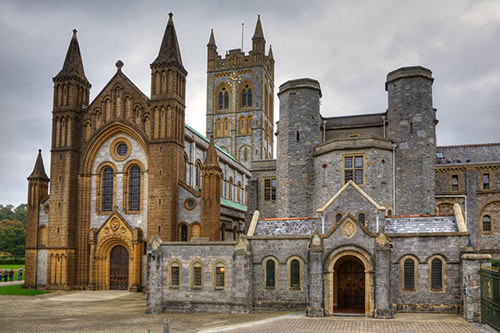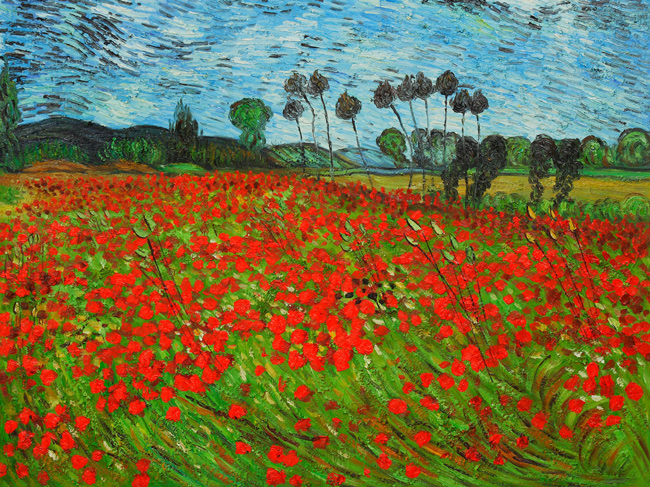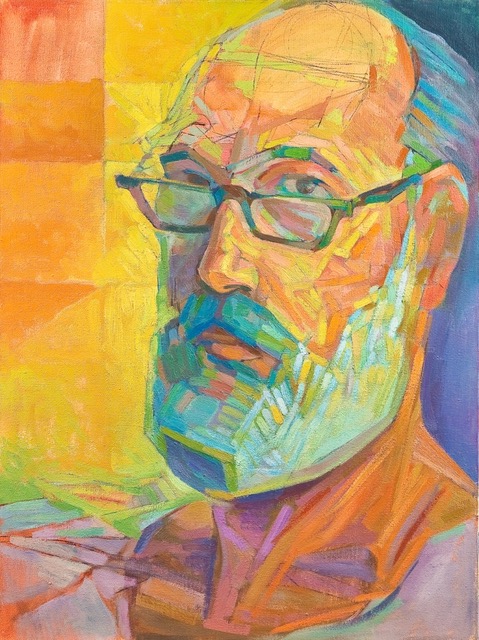When we got to Devon, about 200 miles southwest of London, we couldn’t find a rental property. Our realtor told us Commander Rustom K.S. Ghandhi and his wife wanted to sell their home, but didn’t want to put it on the market.
We visited Commander Ghandhi and his wife, and were fascinated with their backgrounds. He was a retired naval officer who had been in the British Navy, stationed in Hong Kong. While he was at sea, the Japanese had invaded, captured and occupied Hong Kong. Mrs. Ghandhi was living there at the time, and was held in a Japanese prison camp. The Commander wasn’t getting any news of her at all, and didn’t know if she was dead or alive. Every time a ship came from Yokahama, bringing back people who the Japanese had held hostage, he would rush to Victoria Station and wait for everyone to get off the boat, hoping to find her. Finally, on one occasion, Mrs. Ghandhi came walking up the platform, emaciated.
They reestablished their life and bought this house. It had previously been owned by a retired military family who had a retarded child. This child had demolished the green house. Commander Ghandhi rebuilt it, and he and his wife did all of the interior painting, refinishing the floors, and getting everything up to snuff. They had also done a lot of work on the garden. They cleared the weeds, which were several feet high, and put in new plants. The yard looked marvelous.
While the realtor was showing us the house, my daughter Cathy entertained Commander and Mrs. Ghandhi. Cathy was so engaging and animated that the Ghandhis immediately fell in love with her. When my wife and I sat down with them to talk turkey, Cathy had already won them over. Commander Ghandhi explained that they had a fixed price, and said, “We won’t gazoomp you.” ‘Gazoomp’ was the word that was being used at the time for ‘bait and switch.’ The word was unique to that particular period and to that meaning. We bought the house.
The front room in our new mock Tudor was magnificent. There was an alcove with benches on either side of it and a great arched studded door opening into a two-story entrance hall. There was a staircase running up to the top, and a minstrel gallery going all around the high-ceilinged foyer. I used the indoor chapel as a portrait studio so I could have light control.
Buckfast Abbey in the village of Buckfast was a Catholic monastery-type establishment with a very handsome cathedral. It had both an indoor and an outdoor chapel. The outdoor one had a huge box hedge going down a long corridor, at the end of which was a figure of a Mary. It was the perfect spot for prayer and meditation. The indoor chapel had exposed beams and magnificent stained glass windows. When we went up the grand staircase, there was a two-story room entrance. After climbing up to the final level, we could look out over the garden. It was an acre and a half with boxwood hedges and rows of trellises. At the bottom was a leat — a small stream. It was all very formal except for a mound that was left wild.
Hampstead had the largest open park in all of London. There were several duck ponds, and even a nudist colony in a wooded area where nobody bothered the sunbathers. We could walk along the edge of the park by Kenwood, a mansion designed by Lancelot ‘Capability’ Brown, an English architect. We could have tea there and continue onto Highgate Cemetery. Karl Marx and many English authors were buried there. Parliament Hill was nearby, and all the kids would bring their kites. On a sunny day, it was as picturesque and beautiful as you could imagine. Everyone was pushing strollers, playing with their children and walking their dogs. It was lovely.
We were living in an apartment house in Hampstead that was full of television personalities, theater people and film stars. When we went to the movies, we were sitting beside some internationally known film stars and exchanging comments. It was very casual. When we went to the tearoom or the coffee shop, we were sitting with them again.
For more information, go to a Tourist Guide to Devon, England.



